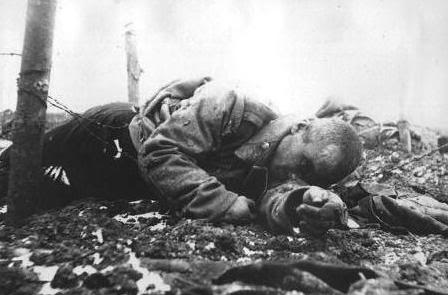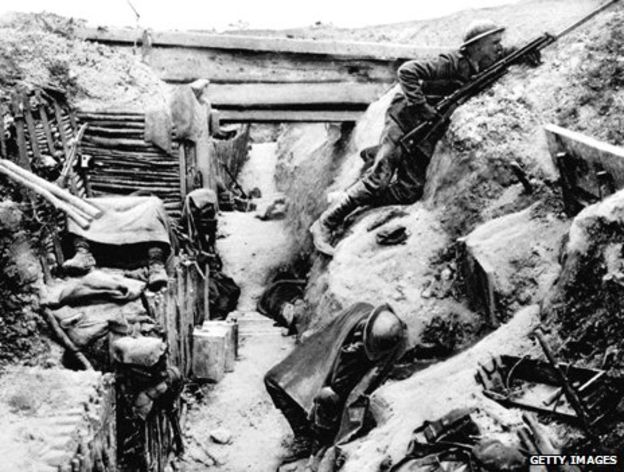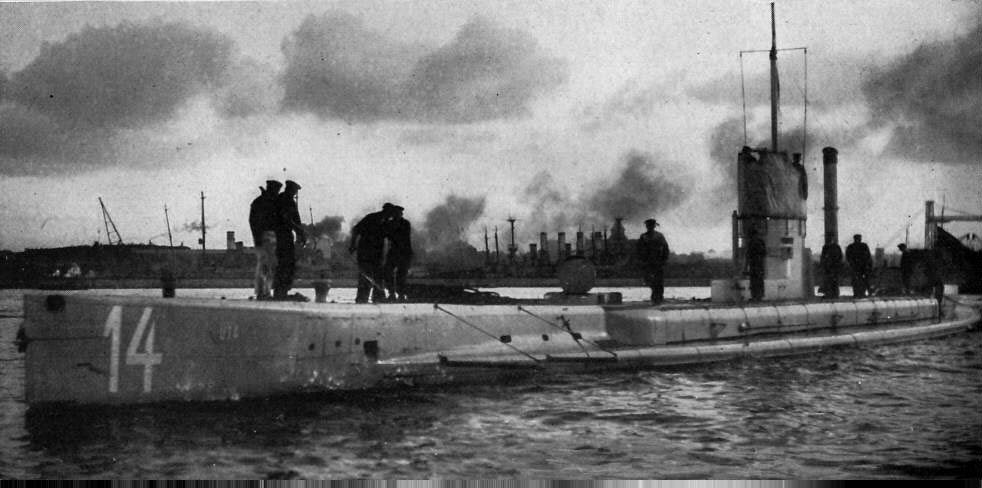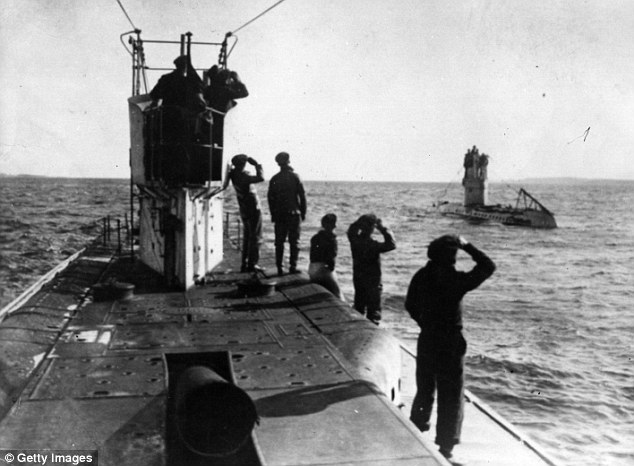Food is Running Out, for Allies and Adversaries.
If U.S. Enters War, Germans Gamble American Help Won’t Reach Europe Soon Enough.
Special to The Great War Project.
(12-19 February) War exhaustion at this moment of the Great War a century ago is plaguing all the major combatants: Britain and France, Germany and Austria, and Russia.
It is early 1917 after more than two-and-a-half years of the most brutal blood-letting the world has ever seen, “despite the millions of soldiers killed and wounded,” writes historian Adam Hochschild, “nowhere along its entire length of nearly 500 miles had the front line moved in either direction by more than a few hours’ walk.”

Death on the Western Front.
“Military history,” he reports, “had not seen the likes of this before, and the Germans were no less frustrated” than the British and the French.
The big picture favors the Allies, not the Germans, but only by a hair.
“The German government was battling against opponents east and west,” writes Hochschild. “whose combined armies were significantly larger, and on the home front the situation remained dire.”

Freeziing on the Western Front.
“In a country already desperately short of food, abnormally severe temperatures froze rivers and canals that usually delivered coal, and millions of city dwellers in the words of one historian “endured cold and hunger unknown since pre-industrial times.”
“Austria-Hungary was in even worse conditions,” reports historian Hochschild. And it was “militarily more of a burden to Germany than the ally it was supposed to be.”
“Its comic-opera army, rich in splendid uniforms, was weak in everything else, and its government was so inept that for the first eight months of war, it had not bothered to stop a Vienna trading firm from doing a booming business selling food and medicine – through neutral countries – to the Russian army.”
The battle for Verdun, nearly a year long, is over, and Germany has failed to take the French fortress city. As Hochschild writes, “That dashed any hopes Germany had for new frontal assaults against either the French or the British.”
The Germans resort to the return of unlimited submarine warfare as a way to break out of this bloody stalemate.
It is one of the great gambles of the war…
…according to Hochschild and many other historians. “The Germans hoped it would force the Allies to sue for peace.”
This decision will almost certainly sink American ships and kill American sailors, forcing the Americans to give serious consideration to entering the war of the side of the Allies.
The Germans hope the U-boat pressure will not bring the U.S. into the war, but it will force the Allies to sue for peace.

Germans step up attacks, including on American ships.
“As reckless as this might seem,” observes historian Hochschild, “the German high command calculated that, even if the United States declared war, severing the Atlantic lifeline would strangle Britain and France into surrender in less than six months, long before a substantial number of American troops could be trained and sent to Europe.”
This is a crucial point: the calculation that does make sense and might work for the Germans.
Writes Hochschild…
“Despite its size, the United States had a standing army that ranked only seventeenth in the world.”
“In any case, how would American soldiers cross the ocean?”
“German naval commanders were confident that U.S. troopships and merchant vessels alike would fall victim to U-boats, because Allied technology for locating submarines under water was still so primitive as to be almost useless.”

Germans return to unrestricted submarine warfare.
Now it is a fight over hunger – which side could be starved into submission first?
